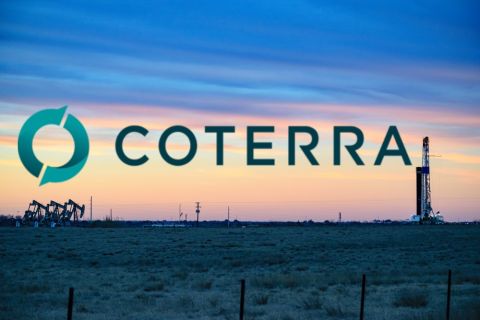Jordan Blum, editorial director, Hart Energy: We are here at Hart Energy's DUG Gas+ Conference in Shreveport. I'm joined by Chris Wright, the founder, chairman and CEO of Liberty Energy. Thank you so much for joining us. Now, you were just giving a talk on energy, climate, poverty and prosperity. I know you could easily talk for an hour on the topic, but can I get you to just give the elevator pitch of why fossil fuels aren't going away anytime soon?
Chris Wright, chairman and CEO, Liberty Energy: Yeah. Even the title is a mouthful, but yeah, trying to cover a lot of complex stuff, but really just talking about what's actually happening with the energy system, how it's evolved over the last 200 years, how it evolved over the last 12 years. Different [from] what most people think, and then climate change, I think it's important to understand that a very real, a global phenomenon — technologies ultimately will solve this challenge, but we need to look at it realistically in what those trade-offs are. If you make energy more expensive, but you don't change greenhouse gases, you just impoverish people and you export industries. Too much of what we do today isn't good for humans, isn't really changing the energy system. It isn't doing anything positive for climate change. So my license plate is energy sober. My goal is to get the world more energy sober.
JB: Very good. We were talking a little bit, it's about following the money. Can I get you to talk about the challenges and successes of selling this vision to Wall Street investors?
CW: Yeah. Look, even from schools I speak in high schools or universities or in Wall Street, people want to know the truth. It just energy's complicated. So I haven't found a lot of pushback on people understanding, “Hey, okay, so that's actually how things are going.” They aren't changing much, but they say, “But Chris, you're aware the money, there's more money in low carbon energy today than in hydrocarbons that power the world in investment capital.” But it's not meaningfully moving how energy's produced. So to me, that's mal investment of capital, but that doesn't mean it's going to stop.
JB: Very good. Now, obviously emissions are a real challenge for the industry, but they're being addressed. I mean, how do you see the progress being made and what's more to do?
CW: Yes. I mean, look, 60% of the decline in emissions in the U.S. and we have larger and absolute terms decline in emissions than any country on earth. Most of the biggest component of that is just natural gas, mostly by market forces displacing coal in the power sector, because if you change things in hydrocarbons since they're large, you can have a big impact. So yes, getting natural gas as growing part of the energy system, producing oil and natural gas in cleaner and lower impact ways. Those are quite meaningful, and in fact, in the next decade or two, they're going to be the biggest movers in reducing greenhouse-gas emissions. But equally importantly, I would say more importantly is to reduce air pollution. So traditional biomass burning wood and dung indoors, burning coal in an uncontrolled way, uncontrolled for pollutants, not just greenhouse-gas emissions. Those are things we can address and we can affix as the world gets more. I think our number one goal should be clean air and more energy, and maybe the third goal is reduce greenhouse-gas emissions from that cleaner better energy.
JB: Very good. Now, obviously crude oil is not going away anytime soon, but there's maybe even more bullishness on long-term natural gas demand worldwide. Obviously, we're not hearing the phrase bridge fuel so much anymore. Can I kind of get you to elaborate there and compare and contrast?
CW: Yeah. As I spoke at DUG here today, the fastest growing energy source on the planet over the last 12 years is natural gas because it's a large fuel source already, and it's growing a little bit more than 2% a year. Oil is growing about 1% a year, but in absolute numbers, that's still a lot of growth. They're the first for natural gas and second for oil fastest growing energy source on the planet. I don't see any realistic prospects of those growth rates meaningfully changing in the next decade or two, but natural gas is the fastest growing fuel source. It's been great for this country. If we can build more infrastructure and export it more, we'll bring that slightly cleaner, slightly lower cost fuel to more and more locations around the world.
JB: Now focusing a little bit more on the here and now, we're in the Haynesville, prices are pretty weak right now. You all are pretty active in the basin. Of course. Can I get you to talk about just how you feel about current activity and prices, and where we go from here?
CW: Yeah. The problem in the natural gas industry is our companies here are too good. We're really good at producing natural gas and again, honestly too good. So we had, 15 years ago, we had 1,600 rigs drilling for natural gas, and we were the largest importer of natural gas in the world. Today we got a little more than a hundred rigs drilling, and we're the largest exporter. That means today before that export capacity comes on, pricing is lower and depressed. We're seeing gas activity contract, I think as it should. But a lot of new export capacity, they'll come on later this year and over the next couple years, we're also starting to see after 20 years of very low growth in demand for electricity, we're seeing that the next decade is going to see much faster growth in electricity demand. What's going to be the biggest source of supplying that growth in demand for electricity? I think it's a pretty safe bet it's going to be natural gas. So I think the outlook over the next five, 10 years for natural gas is quite bright, based on demand growth, but we're good at producing it. We're never going to have a thousand rigs running natural gas again, and that's evidence of success.
JB: Very good. Well, thank you so much for joining us here at DUG Gas+ in Shreveport. We really appreciate it. To read and watch more, please visit online at hartenergy.com.
Recommended Reading
Green Swan Seeks US Financing for Global Decarbonization Projects
2024-02-21 - Green Swan, an investment platform seeking to provide capital to countries signed on to the Paris Agreement, is courting U.S. investors to fund decarbonization projects in countries including Iran and Venezuela, its executives told Hart Energy.
Mitsubishi Makes Investment in MidOcean Energy LNG
2024-04-02 - MidOcean said Mitsubishi’s investment will help push a competitive long-term LNG growth platform for the company.
PrairieSky Adds $6.4MM in Mannville Royalty Interests, Reduces Debt
2024-04-23 - PrairieSky Royalty said the acquisition was funded with excess earnings from the CA$83 million (US$60.75 million) generated from operations.
BP Pursues ‘25-by-‘25’ Target to Amp Up LNG Production
2024-02-15 - BP wants to boost its LNG portfolio to 25 mtpa by 2025 under a plan dubbed “25-by-25,” upping its portfolio by 9% compared to 2023, CEO Murray Auchincloss said during the company’s webcast with analysts.
CEO: Coterra ‘Deeply Curious’ on M&A Amid E&P Consolidation Wave
2024-02-26 - Coterra Energy has yet to get in on the large-scale M&A wave sweeping across the Lower 48—but CEO Tom Jorden said Coterra is keeping an eye on acquisition opportunities.





